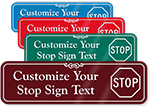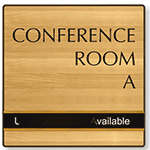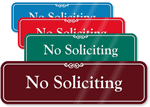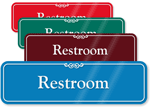5 Tips for office courtesy in open workspaces (without cubicles)
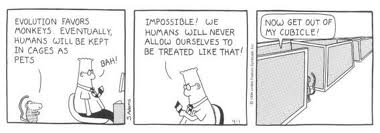
Dilbert chronicles the cubicle life
Remember when the “Dilbert” comic strip was all the rage in the ‘90s? Soon enough, Dilbert-esque cubicles will be a thing of the past. Office managers today are gravitating towards implementing open-concept offices. These are shared work stations; employees sit somewhere different every day, cleaning out their desk at closing time. Open workspaces are effective ways to cut back on office costs (like new desks or nameplates) and encourage employees to socialize. Still, when your seat locations and seat partners change all the time, office courtesy rules change too. Here are some tips to help everyone comfortably adjust to your changing office:
1. Make expectations known universally and up front. When you’re sitting next to someone new continuously, you may be too shy to tell them if their behavior bothers you. Entrepreneur Linda Allan, president of Linda Allan Inc., recommends that companies set up a written code of conduct and hold an orientation when open-concept offices are implemented. Reinforce these methods through signs and training programs.
2. Keep your voice down. It’s the end of the day and you’re winding down by chatting with coworkers. You’re only blowing off some steam, but your neighbors could be working frantically to make a deadline or concentrating on a conference call. No one wants to be the crank who continually asks their colleagues to zip it, so nip this in the bud and lower your speaking voice. After all, you would find it annoying if others were shouting while you’re hard at work.

Example of Open Concept Office
3. Get the Bluetooth ready. Let’s face it: the sad truth is, when someone takes a phone call, every single person around you is listening in, whether they want to or not. Supplying phone headsets, as Ms. Allan suggests, allows people to speak in a lower voice than a receiver on a phone or a microphone on the computer. As far as cell phones, if there’s a policy, make it clear right away. If it affects your concentration when another person gets cell-phone happy, speak up.
4. Play fair with food items. It’s unreasonable to expect that no one will snack or work through lunch, but with shared spaces, it’s imperative to keep them clean. The aforementioned code should address food and regulate food items, encouraging employees to be mindful of leaving crumpled foil bags or trash bags around. Whether you eat something greasy, wiping the mouse or giving your keyboard a spray is a good idea. Remember that another person will use that space the following day.
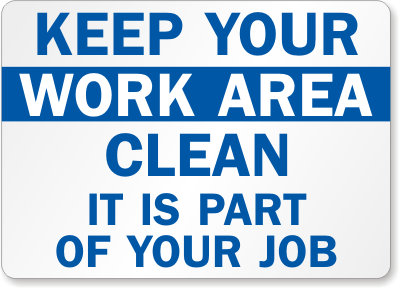
View this sign here.
5. Clean common areas. In an environment where no one has an individual desk, it’s more important to clean up after yourself because the common room is more of a safe and permanent space. Many offices don’t have maintenance workers, and no one is around to pick up after you. Why should others have to pay for your spilled coffee grounds or your pasta dinner? Signs are great visual tools to reinforce the rules. People may overlook an office fridge sign posted far away from the refrigerator, so placing signs right next to the fridge or coffee stations make following the rules impossible to ignore.
How would you feel if your office made the transition to open-concept cubicles? Think it’s not enough personal space or do you think it would make getting to know your coworkers a lot easier? Sound off in the comments below.
Category: Office courtesy


